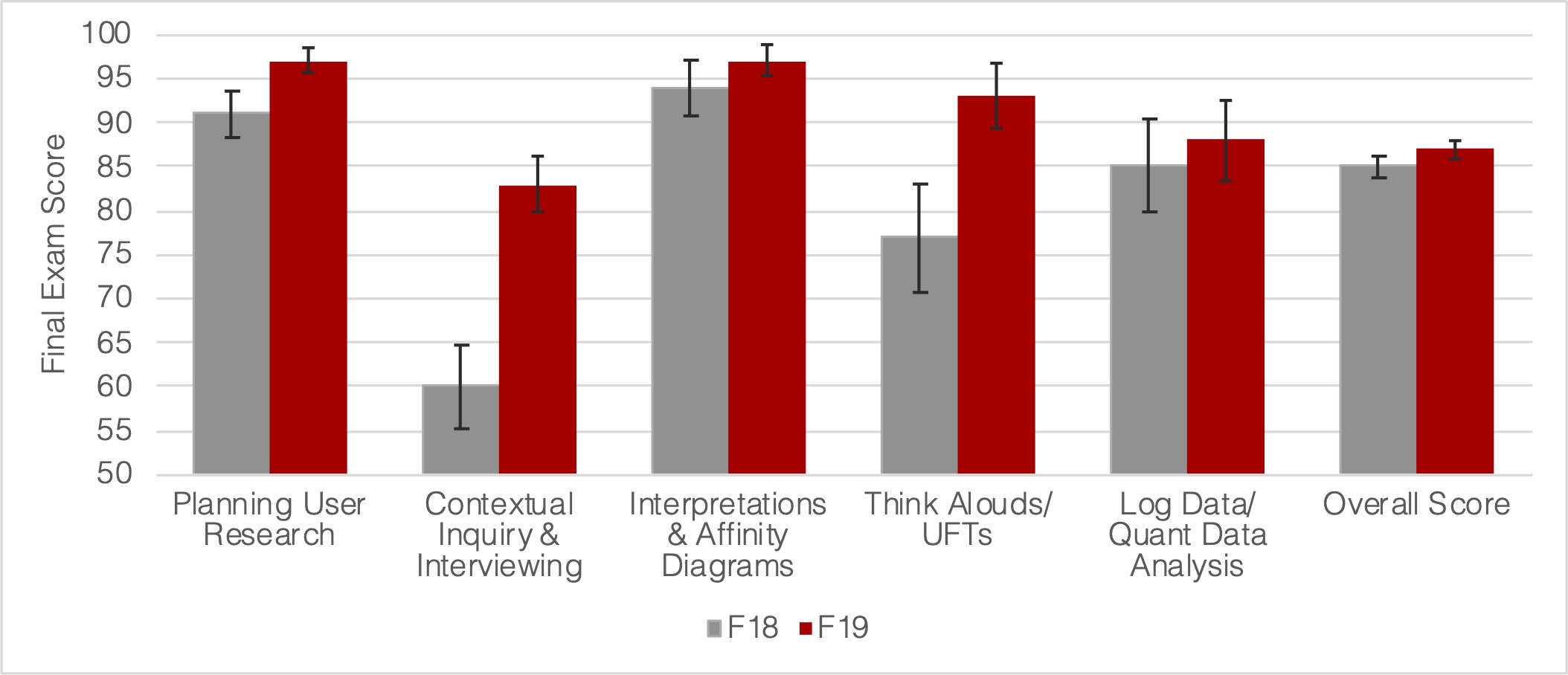Does Teaching Teamwork in Small Groups Enhance Active Learning Outcomes?
Collaboratively learning teamwork skills may enhance active learning. |
User-Centered Research and Evaluation
In the User-Centered Research and Evaluation course, students learn analytic and empirical research methods for evaluating design. Since many professionals in this field work in multi-disciplinary teams, in the Fall 2019 semester, Musuraca included small group work focusing on teamwork skills.
In addition to improving students’ abilities to work in teams, Musuraca hypothesized that engagement in collaborative active learning exercises to teach teamwork would result in a better understanding of course content, specifically various research methods. Some examples of the collaborative active learning exercises include: 1.) CollabU, a set of online modules targeting conflict resolution and communication skills and 2.) learning to give effective feedback to peers prior to giving formal feedback to teams on their interviewing skills.
When comparing the final exam performance, students who engaged with collaborative active learning exercise to learn teamwork skills, performed better than their peers in the semester prior, who did not participate in these exercises. Specifically, students performed significantly better on four of the five exam topics: planning user research, contextual inquiry and interviewing, interpretations and affinity diagrams, and think aloud protocols. These results suggest that teaching teamwork more intentionally and collaboratively may improve student outcomes beyond teamwork skills, specifically by increasing the efficacy of subsequent small group active learning during class.

Figure 1. Students who engaged with active learning team-work activities (Fall 2019, M =87.13, SD =5.23) performed significantly better versus their peers (Fall 2018, M =85.24, SD =6.26), who did not engage with these activities on the final exam, significant mean difference, t (168) = -2.39, p =.009. Error bars are the 95% confidence intervals for the means. Additionally, students demonstrated significant improvement on the following categories: planning user research, contextual inquiry and interviewing, interpretations and affinity diagrams, and think aloud protocols.
Filters in which this Teaching as Research project appears:
College: School of Computer Science
Course Level: Advanced Undergraduate
Course Size: Large (more than 50 students)
Technology Enhanced Learning
